Musa Anter commemorated at the scene of his murder 29 years ago
Kurdish intellectual Musa Anter has been commemorated on the street where he was murdered 29 years ago.
Kurdish intellectual Musa Anter has been commemorated on the street where he was murdered 29 years ago.
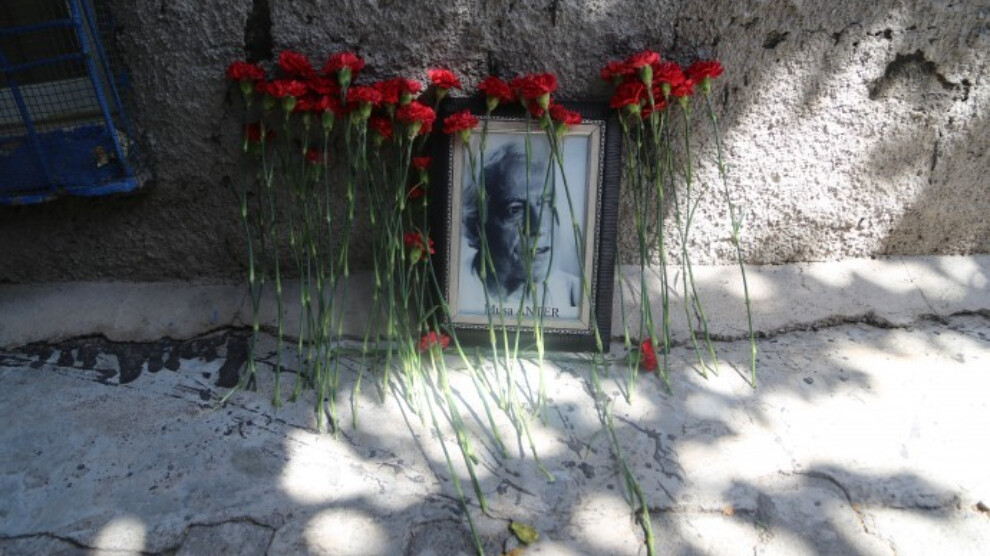
On the 29th anniversary of his martyrdom, Kurdish journalist-writer Musa Anter (Apê Musa) has been commemorated in an event attended by his family, political party representatives and journalists on 442nd Street in the Cumhuriyet neighbourhood of Amed’s Yenişehir district

Democratic Regions Party (DBP) co-chair Saliha Aydeniz, Peoples' Democratic Party (HDP) provincial co-chairs and administrators, Dicle Fırat Journalists Association (DFG) co-chairs, Association for Solidarity with Families Who Lost Their Relatives in the Cradle of Civilizations (MEBYA-DER), Association for Solidarity with Families of Detainees and Convicts (TUHAYDER), Mesopotamia Language and Culture Research Association (MED-DER) executives and members attended the event. The commemoration, during which photos of the martyrs of free press were displayed, commenced with a moment of silence.
Speaking here, DFG co-chairwoman Dicle Müftüoğlu said, “The mentality that wanted to murder him on this very street 29 years ago also wanted to silence the Kurdish press.”
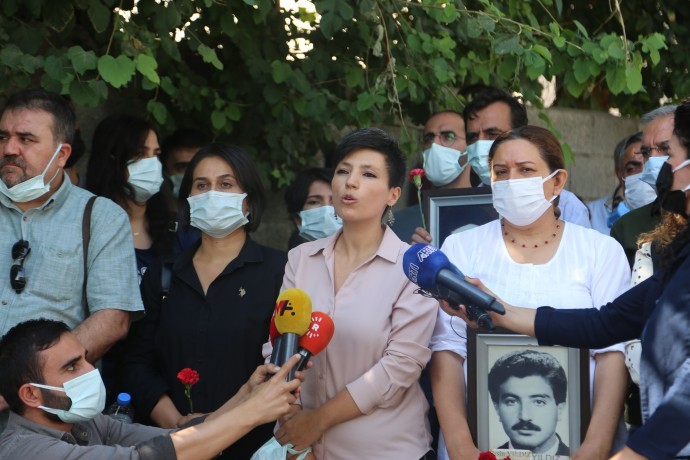
“We are still here to indicate that the free press, the Kurdish press cannot be silenced. Those who shot Ferhat Tepe attempted to destroy a tradition. Those who shot Ape Musa wanted to destroy his pen. Yet, the free press continued to claim his legacy. We are here today to say it aloud at the place where he was murdered. We will continue to fight to bring the murderers of Ape Musa to justice,” Müftüoğlu said.
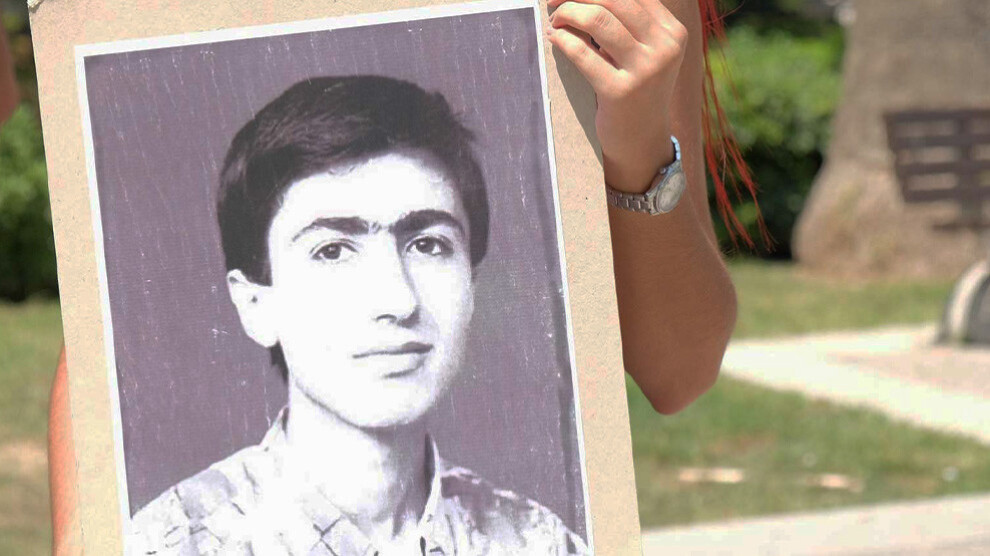
'THEY WANTED TO ELIMINATE THE STRUGGLE IN HIS PERSON...'
Speaking after, DBP co-chair Saliha Aydeniz said that the mentality that murdered Musa Anter 29 years ago wanted to eliminate the freedom struggle of the Kurds. “Those who murdered Apê Musa also wanted to end the freedom struggle of the Kurds, but the struggle of the Kurdish people continues. It has been 29 years that the perpetrators have not been prosecuted, although there are many accounts about those who murdered Apê Musa. We will not let any unsolved murder be forgotten, no matter how many years,” Aydeniz said.
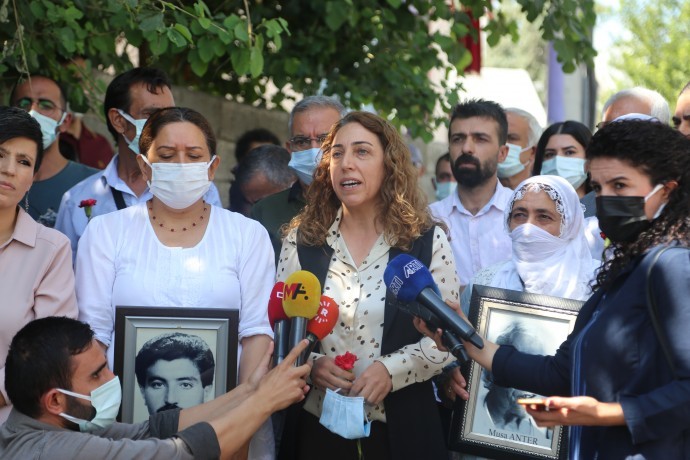
'THOSE WHO WANT TO ELIMINATE US'
“We will carry out an even eager struggle against those who are hostile to the Kurdish people. Despite a partisan judiciary, we will not give up the struggle until we reveal the truth. We know very well which groups committed the massacres in Afrin and Sulaymaniyah. It is the same mentality. We will not give up the fight until we bring them to account. We promise Apê Musa that we will fight until freedom is achieved. They will never make us forget, and I want to express that those who want to finish us off are themselves on the verge of collapse.”
Following the speeches, the crowd marched towards the street where Musa Anter was murdered and placed carnations next to Anter's photo.
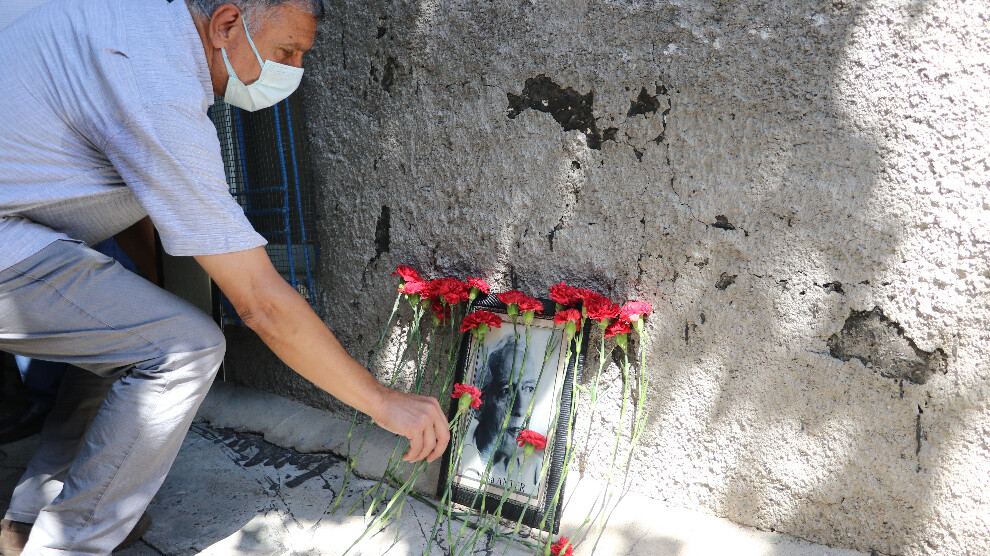
DFG Co-chair Serdar Altan made a short statement here and said, “29 years have passed and our friends are still murdered today. Truth does not fade away. We just learned that it is forbidden to display Ferhat Tepe's photo here. You cannot have him forgotten through these prohibitions, our martyrs of the press are our honour. We follow in their footsteps. We commemorate Apê Musa once again.”
The participants moved to Sitîlîlê (Akarsu) neighbourhood of Mardin's Nusaybin district to attend the commemoration to be held by Anter's grave.
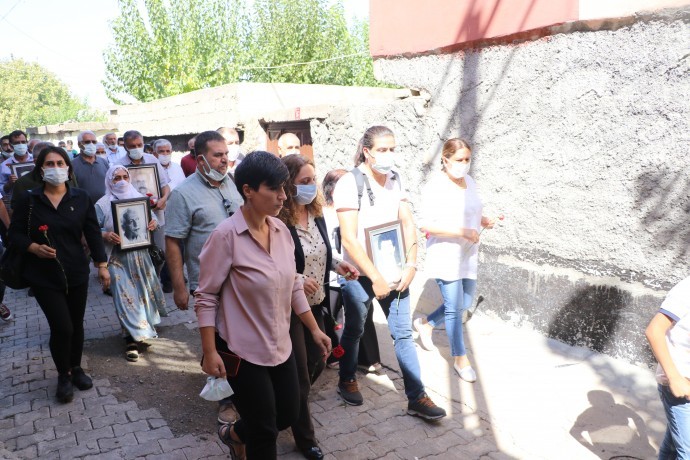
Musa Anter, the plane tree of the Kurds
The Kurdish writer and intellectual Musa Anter was a relic from another time. Born in 1920 in the village of Zivingê in Nusaybin, he experienced many things during his lifetime that others knew only by hearsay. He experienced the founding years of the Turkish Republic, the uprising of Sheikh Said and the genocide in Dersim as a schoolboy, and the Second World War as a student. He was one of the protagonists of the short spring of the Kurdish national movement at the end of the 1950s; in the "Trial of 49" he was accused of Kurdish propaganda and separatism. The background was his poem Qimil (Weevil), which he had published in Kurdish in the magazine Ileri Yurt in August 1959. The magazine, based in Amed (Diyarbakir), was again the first magazine in decades to deal with the Kurdish question. Musa Anter was the editor.
Kurdish society called him Apê Mûsa - Uncle Musa - , or "Çınar", which means "plane tree", a mighty tree with deep roots and far-reaching branches. On September 20, 1992, the Kurdish plane tree was cut down by counter-guerrillas in Amed at the age of 74. Anter, who was living in Istanbul at the time, had traveled to Amed for a cultural and art festival at the invitation of the local municipality. Immediately after his arrival, plainclothes police officers took to his heels. Under the pretext of settling a conflict between two quarreling families, Anter was lured out of his hotel and shot five times in the middle of the street.